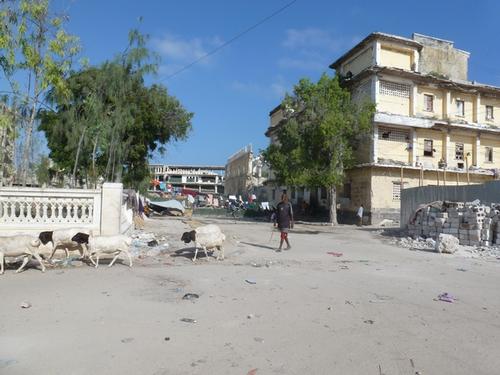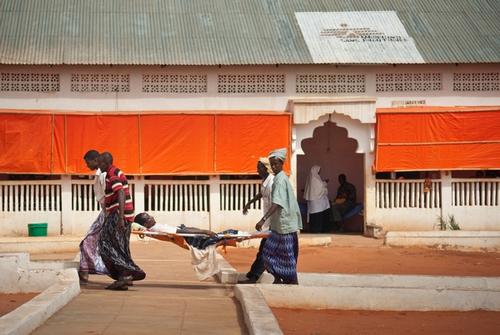Nairobi, 11 March 2013 —Medical activities have been halted at a clinic run by Médecins Sans Frontières (MSF) in Xadaar, a neighbourhood of the Somali capital Mogadishu, the international humanitarian organisation said today.
On 28 January, two of the clinic’s security guards exchanged gunfire, apparently as the result of a personal dispute. Both security guards were wounded in the incident. Fortunately the shooting took place outside clinic opening hours and no one else was injured.
Immediately after the incident, MSF put its activities on hold while trying to restore the minimum safety conditions necessary for its work to continue. But today the organisation was forced to announce the closure of the clinic.
“We take what happened very seriously,” says Michel-Olivier Lacharité, MSF’s programme manager. “With hundreds of people attending the clinic every day, the consequences could have been disastrous. We can’t just wait for this kind of thing to happen again. The safety of patients and staff is an essential prerequisite for our medical work. That’s why today we have to stop our work in Xadaar, despite the medical needs that still exist for the population.”
Xadaar clinic was opened by MSF in April 2012 to provide free general healthcare, including care for expectant mothers and treatment for malnourished children, to local residents and people displaced from their homes elsewhere.
Since the clinic opened, more than 30,000 people have received medical consultations; 2,300 children have been vaccinated against measles and other common childhood diseases; and 556 children have been treated for severe malnutrition.
In Mogadishu, MSF continues to run a 40-bed hospital and to provide outpatient care in the Jasiira neighbourhood of the city. MSF has also been working in Daynile general hospital, on the outskirts of the capital, since 2007. The organisation runs also medical activities in Hamar-Weyne, Hamar-Jabjab, Waberi, Yaqshid and Dharkenley neighbourhoods of Mogadishu, as well as in Afgooye town.
MSF has worked continuously in Somalia since 1991, and continues to provide lifesaving medical care to hundreds of thousands of Somalis in ten regions of the country, as well as in neighbouring Kenya and Ethiopia.
In 2012, MSF treated nearly 30,000 severely malnourished children and vaccinated 75,000 children against infectious diseases. MSF teams also assisted in over 7,300 deliveries and provided close to half a million medical consultations within its health facilities.
MSF relies solely on private donations for its work in Somalia and does not accept any government funding.
On 13 October 2011, two MSF workers, Montserrat Serra and Blanca Thiebaut, were abducted from Dadaab refugee camp in Kenya. MSF believes that its two colleagues are being held in Somalia and appeals for their unconditional release. Until the safe release of Montserrat and Blanca, MSF’s activities in Somalia are limited to lifesaving emergencies only.





